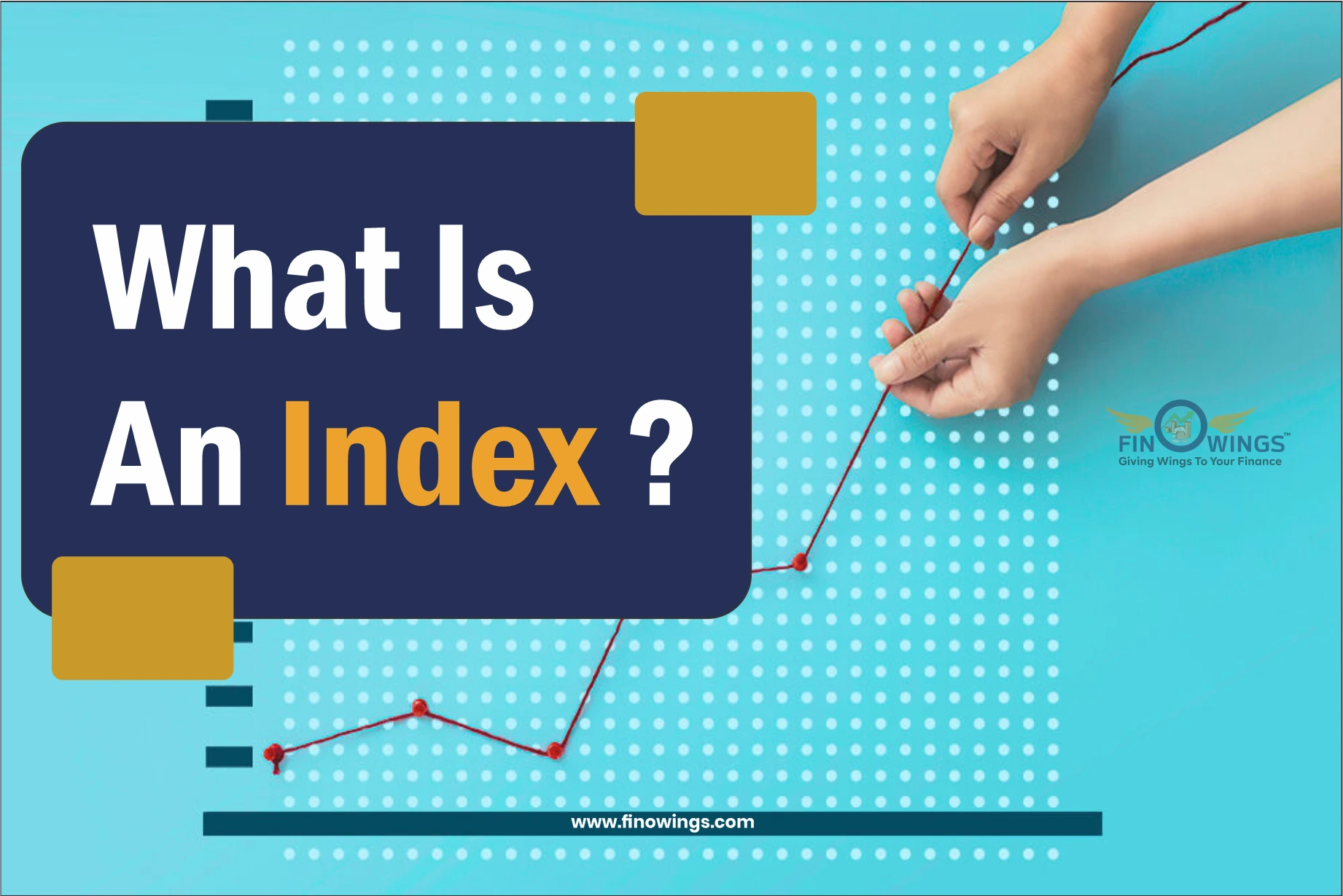Home >> Blog >> Index Market : Importance & Types of Stock Market Indices
Index Market : Importance & Types of Stock Market Indices

Table of Contents
1. What is an Index?
A statistical representation of any set of stocks or observable securities in a given market segment is called an Index. The index level changes according to the given combined value of the stocks in the index. If we phrase an index in a definition, “an index is a bucket of stocks, securities, or any financial instruments that represent and measure the performance of a specific market, assets, or investment strategy.”
The indices provide real-time information on market conditions and regular updates on market highs and lows. When investors are buying more shares than selling indices’ component stocks, and their prices are rising, it directly affects the rise in equity indices. The reverse happens when index levels fall.
1.1. Understanding Index
-
The index gives an overview of the market in a single frame. Investors can evaluate the performance, funds, and investment portfolios as per the trends of the market. The index acts as a benchmark for investments and gives an approximately calculated outcome to investors.
-
An index is a measure of some values. In the financial market, it refers to the statistical measure of the difference in the market. You cannot invest directly in the index but in the particular group of securities representing a particular segment.
-
The S&P BSE Sensex and the NIFTY 50 are the most popular indices in the Indian financial market. Each index has its methodology for calculation. Generally, the relative change of an index is taken into consideration rather than the actual numeric value representing the index.
-
For example, if the S&P BSE 100 Index is at 6,650.40, that numeric value tells investors the index is nearly seven-time its base level of 1,000. However, investors choose to assess the percentage of the index falling from the previous day to get a better idea of changes in the index.
2. The Stock Market Index in India
For a better understanding of a stock market index, one must understand the two main terms of the stock market- stock and stock exchange.
Each country has thousands of companies. Most companies raise the capital needed for their operations by issuing shares to the public. A group of shares is called a "stock." By buying a stock, an investor becomes a partner in the ownership of the company. The public portal through which shares or stocks are bought or sold is called a "stock exchange."
In India, the two major stock exchanges are the Bombay Stock Exchange and the National Stock Exchange. As defined, a stock market index consists of a group of stocks that are listed in a similar category. The indices help in tracking the economy of the world, a country, or a specific sector of the market.
3. Calculating the Value of an Index
The two common methods to calculate the value of a stock market index are Free-float market capitalization and price weightage.
3.1. Free-float market capitalization method-The number of shares that can be freely traded is referred to as the free float. The company’s free float factor can be calculated as free float divided by the total shares.
The free-float market capitalization is the product of the share price, the total number of shares, and the free-float factor.
According to this method, the sum of the free-float market capitalization of all stocks in the index divided by the base year index value equals the current value of an index.
Let’s take an example-
Suppose an index has stocks of three companies, X, Y, and Z.
In company X-
Free float = 100 shares
Total float = 200 shares
Free float factor = 0.5
Free float market capitalization (A) = share price of X* 200* 0.5
Or simply, the share price of X * free float
Then calculate the free float market capitalization for stocks Y and Z in the same manner.
So, the total free float market index:
Free float market capitalization(X) + Free float market capitalization(Y) + Free float market capitalization(Z)
Assume the base index value = 100 and the base free-float market capitalization of the index = 500. The index value will be:
Total free float market capitalization of index * 100
5000
The indices such as the Sensex and Nifty are calculated using this formula. Companies with higher free float impact the index more and are generally preferred by investors.
3.2. Price weighted index-In this method, the index value is calculated by dividing the sum of stock prices of each stock by the divisor, a random value assigned by the index. The divisor value depends on structural changes within the index.
The Dow Jones Industrial Average uses this method. Here, the higher the stock price, the greater the impact of its price changes on the index.
4. Types of Indices
In an index, the stocks are grouped based on various factors, such as the company industry group, the company's size, geographical region, and market capitalization.
In India, there are mainly four types of stock market indices-
4.1. Major Indices
There is no shortage of functioning stock markets across the globe. But, the major three most widely followed worldwide indices are S&P 500, Dow Jones Industrial Average, and Nasdaq composite. In India, the BSE Sensex and Nifty are the major stock market indices. There are other indices such as NSE CNX Midcap and Nifty Junior etc.
4.2. Index Fund
This is a highly asked question, What is an Index Fund?
An index fund is considered a mutual fund or ETF (Exchange-traded fund) with a portfolio constructed to track the components of a stock market index.
An index fund tends to provide broad market exposure and low operating expenses and follows its benchmark index irrespective of the market’s state.
Index funds are generally preferred for long-term investments. They are even considered ideal holdings for retirement accounts, such as IRAs and 401(k) accounts.
Famous investor Warren Buffett has recommended index funds for long-term savings. His ideology is that an average investor should buy all of the S&P 500 companies at low prices rather than invest in one stock.
Keynotes for the Index Fund
-
An index fund is a portfolio of stocks that mimics the performance of a stock market index.
-
Index funds have lower prices than actively managed funds.
-
Index funds are better for long-term investments.
4.3. Index Funds vs. Actively Managed Funds
People often get confused about Index Funds vs. Mutual Funds.
Index funds are considered for passive investing. These are ideal for long-term returns. On the other hand, actively managed funds are market-timing funds, depending on the index value.
5. Importance of Stock Market Index
-
Serves as a benchmark: Selecting a random stock is not an option while investing in the stock market. Here, the index serves as a benchmark and helps to assess the performance of individual stocks. Potentially winning stocks generally outperform declining stocks. Hence, the index also helps to assess the competition in the market.
-
Risk Evaluation: Stock market indexes have detailed information about their listed stocks, including price and quantity, which can help investors decide if investing in the stock is risky or not. The index comprises similar stocks, which gives an overview of a particular stock category. Thus, evaluating risk factors becomes easy by monitoring the performance of the index.
-
Aids in passive investment: Stock market indices help in the development of index funds which are beneficial in passive investments. In an index fund, the investor’s idea is to obtain portfolio returns similar to that of a stock market index. The investor prefers to build and invest in a stock portfolio that reflects the index itself. This portfolio is called an index fund.
6. Conclusion
Stock market indices provide a large-scale representation of how stock markets are performing. These indices help investors understand the risks and profits better.
With all the results given, you should collect all the information for the respective fund before investing. This includes the fund’s records and prospectus. In addition, funds reveal their portfolio holdings quarterly. You can get this information from their website or your financial advisor, as well as on EDGAR.
Author
Frequently Asked Questions
The two major stock markets in India are the BSE Sensex and the NSE Nifty.
Created in 1986, BSE Sensex is India’s first equity index. It holds the country’s top 30 companies.
The NSE Nifty was created in 1996 and comprises India’s top 50 companies.
The NSE Nifty is the biggest stock market index in India.
Detailed information on the stock index and corresponding stocks is accessible to the public through the index’s website.
Stock codes are a unique set of letters and numbers assigned to listed stocks. These codes can be often found in financial news or investment websites.
















